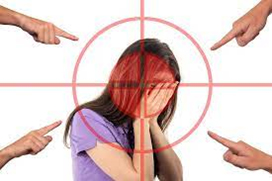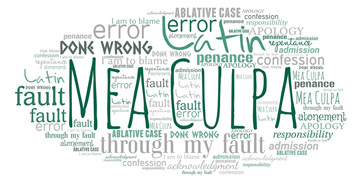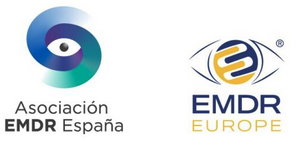
What is guilt?
In the same way that is explained in our post “Why do we have emotions?“, we must understand that each of them is manifested as a messenger that warns us of what is happening and what we should do about it. Guilt is a messenger that comes to warn us that we have not fulfilled what is expected of us. For example, when we go against the social norm, when we don’t achieve our goals, or when we commit mistakes. Guilt informs us that this is our situation, and prompts us to remedy it if possible. If a friend has lent me money and I can’t pay it back, guilt informs me that this is not good behaviour and prompts me to apologize and think about how to repay them.
Many times, along with guilt, shame appears, which is manifested for similar reasons, but instead of activating, it prompts us to withdraw temporarily. Both are unpleasant emotions for anyone.

The Source of Guilt
If we look closely, all emotions have a more or less marked social function. For example, anger informs others that our boundaries have been crossed, and to do so it makes us speak more firmly and with more momentum, to make others understand the importance of such a fact. Joy, on the other hand, informs others of our good disposition, and we could go on with the rest. However, guilt especially deserves separate mention in this matter. Guilt not only has a social function, but also its origin is largely so.
Where do we learn what is right and what is wrong? How are we taught about when we are acting wrong? Who teaches us when it’s necessary to apologize? Surely, possible answers to these questions are already coming to your mind. Guilt comes from the culture, from the morality that prevails in our environment. That is to say, its development and understanding depends to a large extent on the family, society and moment in which we live. For this reason, a woman wearing her head uncovered can be experienced with guilt in some cultures, and at the same time be something that does not arouse such emotion in others. For that same reason, looking people in the eye can be something to be ashamed of depending on which country you live in.
That is to say, to speak of guilt implies to speak of ethics and morals, to speak of good and evil, of punishment, of forgiveness, of what is forbidden, of obligations, of expectations. Family, school, work and society in general install in us from birth how we are expected to behave, speak and think. That doctrine is sometimes very explicit, and in many others not so much, sometimes it is stricter, and sometimes less.
In any case, we are usually taught from the conviction that good behaviour is instilled in us. Unfortunately, however, this is not always the case. That’s why guilt can manifest itself when it shouldn’t. On that occasion, it will be most difficult for us to manage it, because we will conflict with what has been instilled in us and we will not understand what to do. Let’s look at two examples.
Marcos is an 11-year-old boy who lives with his parents, both doctors and very strict. Marcos is not allowed to go out on the street if he has not finished his homework. His father checks him for spelling mistakes and scolds him if he makes the same mistake multiple times. He tells him that he will never become a doctor like him if he doesn’t get serious about his studies, and that he should be ashamed of not knowing how to put the accents at that point. In other aspects, such as helping around the house, Marcos’ father is also strict and calls him lazy or dirty if he has forgotten something or has not done it as he sees fit. If he does it right, the boy is told he “can always do better.”
When he is older, Marcos is characterized by being a very strict young man with himself, he beats himself when he has not had a good grade in his degree’s exams, and he feels guilty for not being able to live up to what is expected of him. When that happens, he cancels all his leisure plans and locks himself at home to study.
Maria is an 8-year-old girl with a younger brother with cerebral palsy. From the moment her brother was born, her mother turns to the little one for his greatest needs and begins to put Maria’s needs on the back burner. Whenever Mary requires attention, she is treated as selfish for not taking into account that her brother takes longer time. Maria’s mother is overwhelmed and begins to make Maria responsible for tasks that do not correspond to her because of her age.
Years later, Maria is someone who takes into account the needs of others, but neglects her own. Therefore, she avoids saying what she thinks to her partner and friends, and delegates many decisions to them. Even if she doesn’t agree with something or doesn’t feel like it, she avoids saying it, and if she does, then she feels guilty and apologizes. It happens with something as simple as saying “I don’t feel like going out with you today” or “I didn’t like what you told me”.

How to recognize when guilt is inappropriate
There are several signs that may indicate that guilt is manifesting itself inappropriately:
- We experience it very often
- Others are surprised at the intensity of our guilt
- We ask for forgiveness constantly
- We see mistakes where others see learning
- We feel an obligation to satisfy others
- It’s hard for us to say no
- We don’t recognize what we do well
- Any criticism affects us
Still, not all of them will work for everyone. As we have already seen in the previous two examples, each personal story leads to experiencing guilt in a different way.
Either way, if we find that some of the things on this list are happening to us, we probably need to do something about it.
Recommendations for coping with guilt
Some exercises to do when we experience it are:
- Talk about our guilt with the people around us. Keeping it inside will only make bigger in our minds and we will experience it worse. By saying so, we release the emotion, and in the process, we receive more objective feedback on the situation.
- Change the way we talk to ourselves when we commit a mistake. We can start with a very simple record of what we say to ourselves. Just writing down in a notebook the situation and how we have spoken to ourselves, can help us realize how serious our self-talk is and try to replace it with other more compassionate phrases.
- If we feel guilty about how others feel, we should ask ourselves what percentage of responsibility we have for it. Sometimes, we may have had something to do with the emotions of others, but usually it’s something we cannot control. Even if at the moment it is difficult for us not to apologize and not to offer solutions, later we can ask ourselves what degree of real responsibility we had in this and write about what other ways we could have acted with. That way we’ll have it more accessible in mind for next time.
- Related to the above, we can try to make a list of everything that generates guilt and divide it into three columns: things that depend on us 100%, things that do not depend on us, and things that depend in part on us. This can make us have a more realistic view of our role in these things and be able to adjust the feeling of guilt a little more to reality.
- Apologize. Let’s not forget that guilt is sometimes justified and the problem doesn’t have to be feeling it, but to daring to apologize. Saying “sorry” may have become an overused word, and lose its meaning. If we want to make sure we express it well, we can divide it into its parts:
- I admit that I’ve done damage
- Knowing it makes me feel bad
- I regret it and it won’t happen again
- I ask (I don’t demand) that when you can (if you can/want to), that you trust me and that the relationship continues, because it’s important to me.
- Self-Forgiveness Letter. Sometimes, we can’t get rid of the guilt and we can only forgive ourselves. Think of someone you have forgiven and use similar expressions with yourself. Understanding that we can make mistakes and accepting the consequences of those mistakes can be really difficult.
These exercises can be helpful, but the truth is, guilt can be very difficult to manage. In cases such as the examples described, managing guilt requires a constant exercise of deconstructing one’s own beliefs, and learning to relate better to ourselves. If we see that the above is not enough, the best option is to ask for professional help. A general health psychologist can help us on that path.
Guillem Nicolau Coll
General Health Psychologist
Col.No.: B-02773








